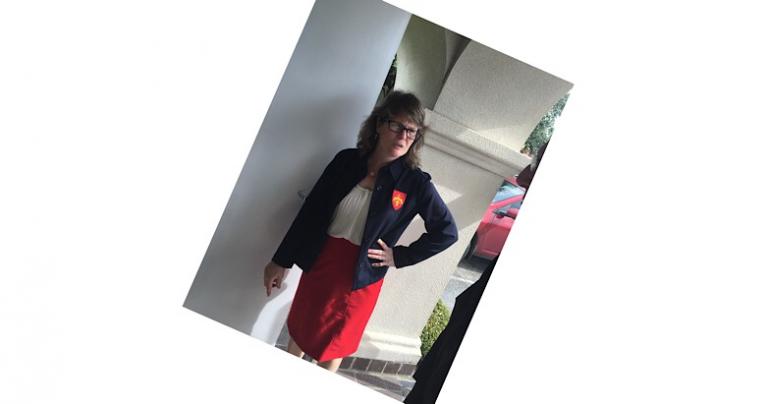 With God’s blessing, we can go from seeming to be good to being good. The aspiration was right, but the reality must follow. One way God uses to help us is sending good people into our lives. They help us change.
With God’s blessing, we can go from seeming to be good to being good. The aspiration was right, but the reality must follow. One way God uses to help us is sending good people into our lives. They help us change.
Better Than He Thought: Rochester and Jane Eyre
In Jane Eyre, Rochester thinks he loves Jane, and he will eventually, but not until he sees his need for Jane. He knows she is his equal, but still believes that with different breaks in life “I might have been as good as you.” This is absurd as his privileged life had been easier than Jane’s: orphaned, sent to a horrible school, and forced to make her own way in life with no resources.
Jane is good, because she chooses God and the moral law: even when it is hopelessly hard. Rochester? He fails. Jane’s example is necessary for God’s redemption of Rochester, because he must see the depth to which true character will go. He has rightly judged that Jane is a good soul, but for bad reasons. As a result, Rochester treats Jane unjustly. He sees Jane’s superficial conformity to the rules, her primmness, and dimly knows she is passionate. What he cannot see is that her passions are as strong as his, but so is her will. She will not bow to injustice or become enslaved to desire.
I understand this, because my wife, Hope, is a bit like Jane and I was a bit like Rochester. Too often I judged by seeming and not reality. This meant my choices were off when I wished to please her and I could not properly change to honor her. I missed her deeper qualities while admiring her (real) superficial characteristics.
At least my conclusion was correct: Hope was good. This was . . . Hopeful, since if a man persists in a right conclusion, then he might come to the truth. God help me!
Yet there is an even worse error most of us make: thinking someone is a friend who is not. We judge on “seeming” and our seeming friend turns out to an enemy. God help us!
Worse than He Thought: Polemarchus in Republic
In Republic, Socrates is discussing justice with a young man, Polemarchus. They are examining a typical Greek view (as expressed by the poet Simonides) that one should do good to friends and harm to enemies. Eventually Socrates will convince his friends that a man should not do harm to anyone, but that is for later.
Early on they realize that “doing good to friends” is fine . . . Unless you mistake friends for enemies. Injustice follows, not just from the enemy. We also are unjust to our enemy when we treat him like a friend. When a bad boss gets loyal service, and returns only disloyalty, our mistaken friendship has allowed the boss to harm us and so harm himself.
If a man must damn himself, we do not have to help by giving him directions. Socrates says:
The truth is that Simonides’ definition doesn’t work. Someone who is a poor judge of people will often have friends who are bad friends; in this case it turns out that Simonides’ definition would have him do his friends injury. Conversely, he will have enemies who in fact are good men; and these the definition bids him support. But now we have come around to the exact opposite of Simonides’ original position.
You are right. The error seems to be connected with our use of the terms friend and enemy.
What error, Polemarchus?
We defined a friend as one who seems to us to be good.
And what definition should we use instead?
A friend is one who is good in fact and not merely in our opinion. If he only seems good, he will be only a seeming friend. The same must be said for enemies.
Polemarchus is making an important distinction between seeming and reality. This distinction is essential to all of Plato’s philosophy, to the development of science, and to any ethical life. There is still an error in Polemarchus’ thought, however. Like Rochester, he thinks his chief need is to know another person better. Rochester must know Jane. Polemarchus must rightly judge his friends and enemies.
This will never work, because if a person does not rightly know himself, then he cannot know another. Socrates says he must know himself. I might see that Jane is good and this particular boss is an enemy who should not be helped, yet still be unjust, if only to myself, if I do not know myself. What kind of friend am I? Am I good or am I soft on self? After all, if I do not know myself, then I can make even a very good person harmful to me by misreading what my soul needs.
The hope for Polemarchus, though it will not come to fruition, is his use of “our” when he describes “our opinion.” He is (at least for now) in community with Socrates, a person who might (perhaps!) help him know himself.
What? Isn’t “self-knowing” a solitary phenomenon, chiefly centered on gazing at one’s navel?
Not for Socrates and not for Polemarchus at this point in the discussion. They are talking together, looking for the truth together, and Polemarchus will have a change to see himself reflected in the eyes of Socrates! A good discussion reveals what our partners are like, but also shows us what we are like!
By all means, let us look for reality over seeming or at least know seeming for what seeming is: at best aspiration, at worst hypocrisy. (Lord have mercy on me!) In a deeper way, let us follow Bronte (Jane Eyre) and Plato (Republic) and know self in community with another. That is not always pleasant (as I can testify), but it is good.
And happy thirty-second anniversary tomorrow, Hope. Thank you. If I keep changing, I might be as good as you!
———————————————-
*I begin an informal summer reading of Republic using Scott/Sterling (a new translation for me). Part 1. Part 2. Part 3. Part 4. Part 5. Part 6. Part 7. Part 8. Part 9. Part 10. Part 11. Part 12. Part 13. Part 14. Part 15. Part 16.
**I have no idea how much of what I know is just Professor Al Geier filtered through my eccentricity. Here is to you Al!












